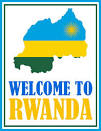This is a guest post by Paul Leslie
The speakers invited to the LSE to share their knowledge and insights and/or to explain or defend various ideological or political viewpoints are impressively varied and many public lectures which I have attended have been enlightening and sometimes enriching.
In practice, however, there are certain limits to the diverse views the interchange of which the LSE claims to promote and it is not unreasonable to speculate that certain academics, tenured and untenured alike, whose allegiance is to extreme left-wing worldviews, have been able to wield some influence. A not insignificant number of LSE academics support anti-Israel boycotts of various kinds and openly advertised public lectures which put Israel’s case and explain its security and other interests are rare to almost non-existent.
The systematic disruption of the public lecture by Israel’s Deputy Foreign Minister Danny Ayalon should give cause for concern, even if you, like me, are not a fan either of this man or of the party he represents, or, quite simply, detest him as just another representative of the majority of lying politicians. His talk was one that Israelis of other political allegiances could have given, given that one of its main themes was Israeli readiness for “painful concessions” in the right circumstances. (See “EXTREMISM AND ANTI-SEMITISM AT LONDON SCHOOL OF ECONOMICS”)
It is true that many politicians of Israel Beiteinu – a strongly nationalistic and secularist party, with anti-religious tendencies and a solid electoral base among Israelis originating from the former Soviet Union – indulged in counter-productive and in some cases reprehensible demagogy in the period leading up to last February’s elections. The part of the electoral platform which proposed “loyalty oaths” for all citizens in order to help to combat anti-Zionists suspected of dangerous anti-Israel activities, like the organisation of violent manifestations of solidarity or conspiracy with terrorist groups – taken to extremes – would be an irresponsible way to deal with the potential threat represented by the minority of extremist anti-Israel parties which have members in the Knesset. (In common with non-“Anglo-Saxon” democracies including Austria and Germany, the Israeli constitution provides for the exclusion of certain extremist political parties from the political process. In practice, for various reasons, the relevant legal process has only in a very few cases led to banning of political parties, e.g. Kahane Chai.) Since entering power Israel Beiteinu has generally behaved in a moderate way. (Not a few of those people who like to accuse Israelis of racism at the drop of a hat bring up this party’s support for land swaps, i.e. the retention of some of the West Bank territory captured in 1967 in return for the cession of some of Israel’s pre-1967 territory – something which I do not support, for a combination of reasons, including, especially, security ones. Other Israeli political groupings, including many on the left also support land swaps, without always thinking through the possible consequences.) If Ayalon, supposedly, is a “racist” and an extremist, what about Tariq Ramadan, Moslem Brotherhood man dressed up as an enlightened European multi-culturalist, who gave a public lecture at the LSE on the 14th October 2009?
Though, as stated above, most of the LSE’s public lectures are worthwhile, there are a number which deal with various aspects of the UN and which could be said to be all too uncritical. Is this because of the LSE academics with UN connections – not only the notorious Christine Chinkin of the distortion and lie-filled Goldstone report?
Anne Bayefsky is a valiant fighter against UN abuses (see her website www.eyeontheun.org). She holds a B.A., M.A. and LL.B. from the University of Toronto, a M.Litt.from Oxford University, has been a professor at York University, Canada and practised as a barrister and solicitor in Ontario Bar. The critiques and studies of this specialist in human rights and international humanitarian law (the laws of war) are always detailed and properly sourced.
The author of the following seminal study – “The UN and the Jews” – Professor Bayefsky is fervently pro-Israel and was one of those who personally experienced the anti-Jewish discrimination at the orgy of anti-Semitism which was the Durban “anti-racism” conference in 2001.
(“Human Rights Watch Cover-Up” and “HRW Response on Durban and Exchange with NGO Monitor”)
Professor Bayefsky is also a senior fellow at the right-wing Hudson Institute – but so what!
Read what recently happened to her, after she – the only one at the UN session in question – had the temerity to attack the Goldstone report, in the following article (“Banished at Turtle Bay. A U.N. critic has her credentials stripped.”).
Will there be any LSE academics to defend this latest example of the UN’s violation of human rights?


